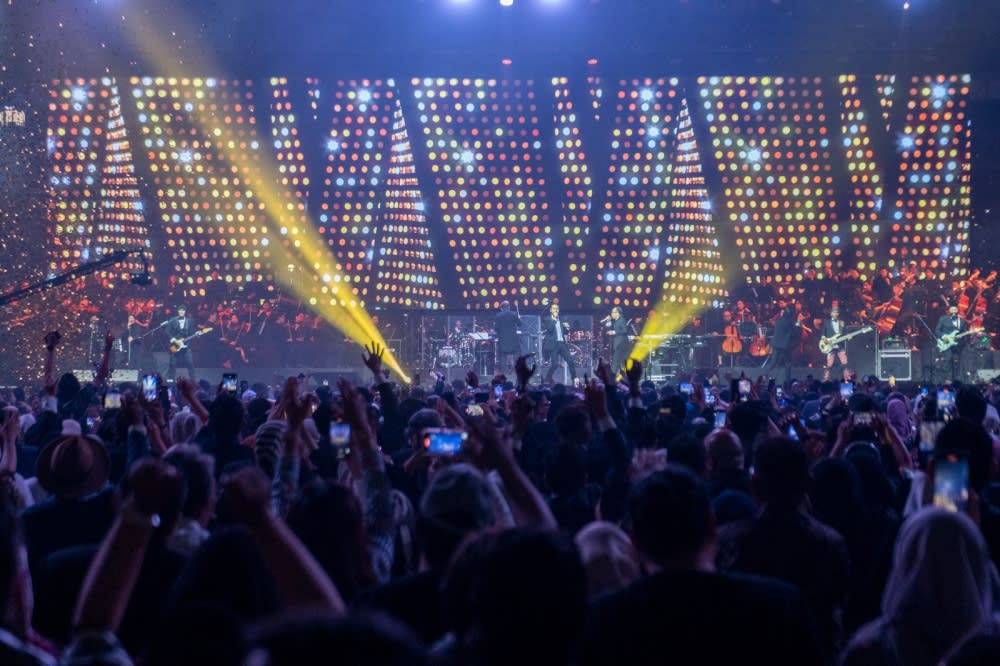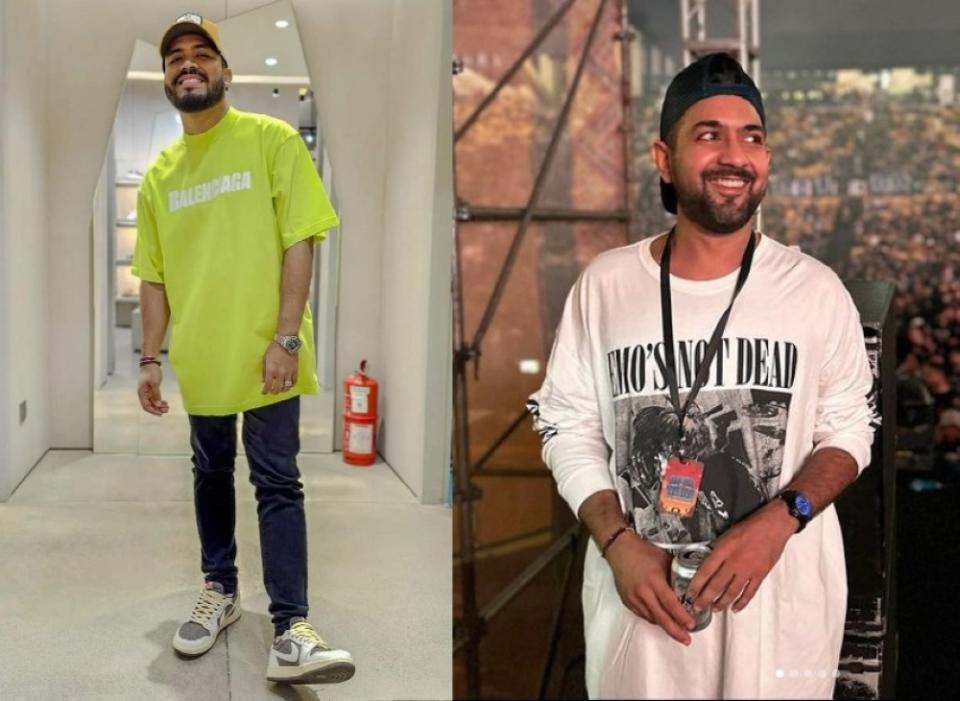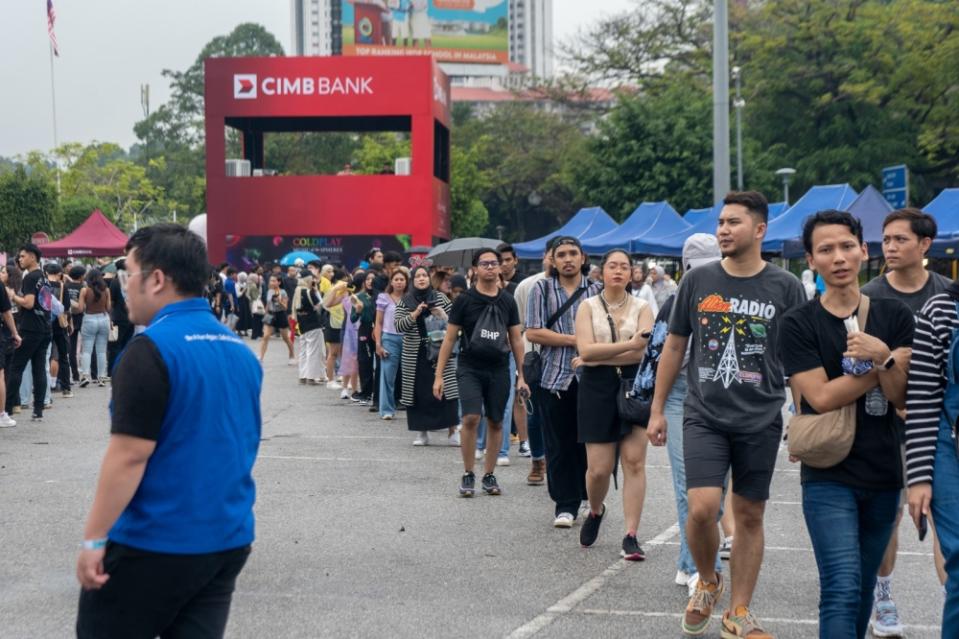Concert organisers: Anwar govt spot-on in backing Coldplay gig, potential billions in future revenue

KUALA LUMPUR, Dec 4 — From high entertainment taxes to religious conservatism, it is hardly surprising that international concerts and tours skip Malaysia and opt for our neighbours.
But do we really have what it takes to be a regional concert capital? And what do we stand to gain if we achieve the international standards that will give Malaysia the coveted status of popular concert destination?
For “live” music industry practitioners, the answer is yes. And as to the benefits? Well, for starters (and the most obvious), a whole lot of money.
“The Malaysian ‘live’ music industry is worth way more than a billion ringgit and can bring in a revenue of six to eight times more than expected when big concerts are held,” said international entertainment agency RK Live director Rahul Kukreja.

Rahul Kukreja (right) and Adam Ashraf. — Pictures via Instagram/rahulobs and Facebook/Adam Ashraf Kingsman
Local concert organiser and event promoter Adam Ashraf of Hello Universe estimates that the local “live” concert industry has the potential to rake in at least RM50 million in annual revenue.
“If we bring in around eight to 10 A-list artistes from around the world to perform at a venue with around 50,000 to 60,000 capacity per concert a year, RM100 million in revenue is achievable. Or to be safe, I would say at least getting over RM50 million in revenue is within sight.”
He said based on the survey from their last concert, many international concertgoers opt to come to Malaysia for concerts because of our currency, food and hospitality. And this translates into tourism revenue.
“We consistently attract tourists from around the globe, including attendees from as far as the US, UK and other European countries,” said Future Sound Asia (FSA) director of entertainment Wan Alman Ariffin.
FSA organises the annual music festival Good Vibes Festival (GVF), an event that brings in a large number of concert-goers from neighbouring countries like Singapore and Thailand.
“Festival goers who fly into the country typically stay for a few days and spend money on accommodation, food, transport, entertainment, etc, thus contributing to tourism revenue.”

Nabila Huda and Wan Alman. — Pictures courtesy of Nabila Huda and Wan Alman
“Malaysia is a natural choice as a hub for ‘live’ shows in the region due to our versatile appeal as a destination, where our thriving urbanism is also steeped in rich heritage and multiculturalism,” said actress Nabila Huda of concert organiser Neptune Presents.
“We boast a natural ecosystem unlike our closest neighbours, an advantage we must realise and embrace in order to grow KL and Malaysia as the choice for live shows in the region.”
Organising concerts also spur job creation within the “live” music industry itself. “We usually employ around 700 crew members to organise a ‘live’ show. We rent out booths to small vendors to ply their trade at the venue. So, these ‘live’ shows support hundreds of livelihoods,” said event management company Shiraz Projects executive producer Shirazdeen Karim.

Joanne Goh and Shirazdeen Karim. — Pictures courtesy of Joanne Goh and by Miera Zulyana
Events and concert organiser Star Planet chief operating officer Carmen Liew and Jazzy Group owner and Malaysian International Film Festival (MIFFest) president Joanne Goh agree. Both Star Planet and Jazzy Group specialise in the “live” Chinese entertainment events segment.
“The industry’s impact extends beyond direct employment, triggering a positive ripple effect on associated services such as hotels, transportation, restaurants and local businesses,” said Liew. “This collective contribution significantly enhances the overall economic development of the region.”
“Positioning Kuala Lumpur as a South-east Asian hub for international entertainment would not only boost the local economy but also foster the development of diverse job opportunities,” added Goh.
And those opportunities are aplenty, including exposing homegrown talents to the world. Malaysia, being home to the largest Indian population outside India, is also the second biggest market for Indian entertainment.
“Hosting Indian ‘live’ music shows can boost revenue for the tourism industry since foreigners account for almost ten per cent of the concert attendees for these shows,” said Shirazdeen.
He said “live” shows enable local artistes to feature their work as opening acts. Local musician Darkkey Nagaraja, for example, started making waves in the local music scene after performing in music composer Yuvan Shankar Raja’s concert in July.
And it’s true for the many acts who have the enviable luck of being chosen to open for a big-name act.

Liew (right) with Hong Kong singer Eason Chan, who was brought in by Star Planet for a concert in July. — Picture via Instagram/carmen.liew.353
While Malaysia already has world class infrastructures and facilities such as Bukit Jalil National Stadium and Axiata Arena, it’s simply not enough.
“It would do us well to increase small-scale venues for arts and cultural activities as well as medium to large scale arenas to increase the choice for consumers and promoters alike,” said Nabila.
Shirazdeen agreed, calling on the government to create more suitable venues. “The limited availability of venues often forces organisers to start planning at least six months in advance.
“Even the Axiata Arena (the most sought-after venue for Indian music concerts) is fully booked until May 2024.”
The construction of state-of-the-art facilities, including concert venues, accommodation, and supporting infrastructure means the potential to transform KL into a dynamic hub for the global entertainment industry, reaping economic benefits and enhancing the city’s cultural vibrancy,” said Goh.
Echoing the same sentiment, Adam, who brought in Grammy-award winning British rock band Muse last July, believes that Malaysia has the potential to become one of the best entertainment hubs for live music in South-east Asia — if the many issues are addressed.
These include the many restrictions that aren’t as clear cut when it comes to guidelines for promoters and organisers, with existing governing conditions unclear and ambiguous, which often results in endless battles of acceptance and rejection for organisers.
“This ambiguity resulted in a clear loss of shows that could’ve visited our shores, affecting our economy adversely,” said Nabila.
For Malaysia to emerge as the entertainment hub of South-east Asia, more needs to be done, including scrapping entertainment tax for foreign artists and easing the approval process for them to perform in Malaysia.
“Currently, organisers have to pay the performance visa fee, a withholding fee, besides the entertainment tax to bring in foreign artists,” said Shirazdeen.
Promoters and organisers agree there are too many unnecessary rules and crushing taxes enforced on performances.
“The fact that Prime Minister Datuk Seri Anwar Ibrahim was very supportive of the recent Coldplay concert and allowed it to happen despite there being some protests by certain people is very commendable,” said Wan Aiman.
He however added that he hoped “the same considerations are also extended to all concerts regardless of size, and not just to very big, high-profile concerts such as Coldplay as it is important that shows which already have all the required permits approved not be cancelled at the last minute unless proven to be a credible and significant threat to public safety, so that international artists have confidence in coming here to perform.”
Rahul has 15 years of experience in organising “live” music events in South-east Asia and said many promoters have tried to voice their concerns to the government — only for them to be ignored.

Malaysia must capitalise on the golden economic opportunities of entertainment tourism. — Picture by Shafwan Zaidon
“I have told ministers that it costs zero money to invest in an industry that will bring in billions of dollars,” said Rahul. And that is perhaps Malaysia’s Achilles heel when it comes to the “live” music industry.
Singapore can always secure concerts with some of the biggest names in music today because stars like Taylor Swift, Coldplay and Beyoncé have deals with the biggest music entertainment companies in the world such as Live Nation and AEG who have their South-east Asia headquarters in Singapore.
“So, it’s easier for them to hold their concerts there since it’s near their office, and also many of these big concerts were planned out one to three years in advance,” said Rahul. “Some of these big artists also happen to have extended family members who live in Singapore, like Coldplay’s lead singer Chris Martin for example, so they prefer to stay in Singapore for more days to visit them.”
But the most important reason is because Singapore’s economy is better and the government will “hold your hand” and guide you step-by-step to make doing business as easy as possible, he said.
The bias in the West against performances in Malaysia is also true, with bad management as its root cause. “We are known as the ‘maybe country’ as we are very slow and unclear in securing these big deals with international acts, our mindset seems to be ‘act now, think later,” he said.



